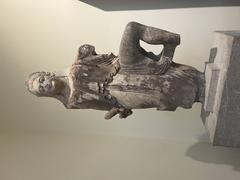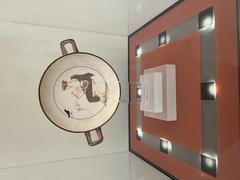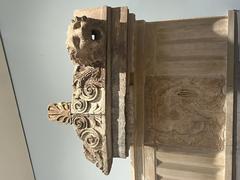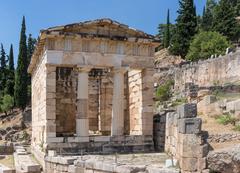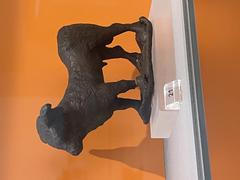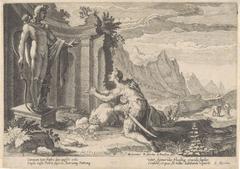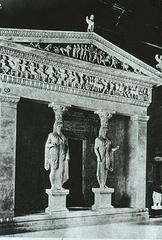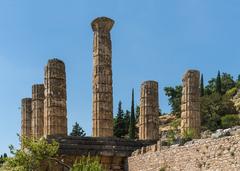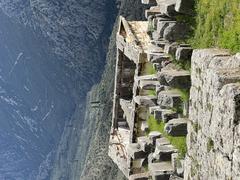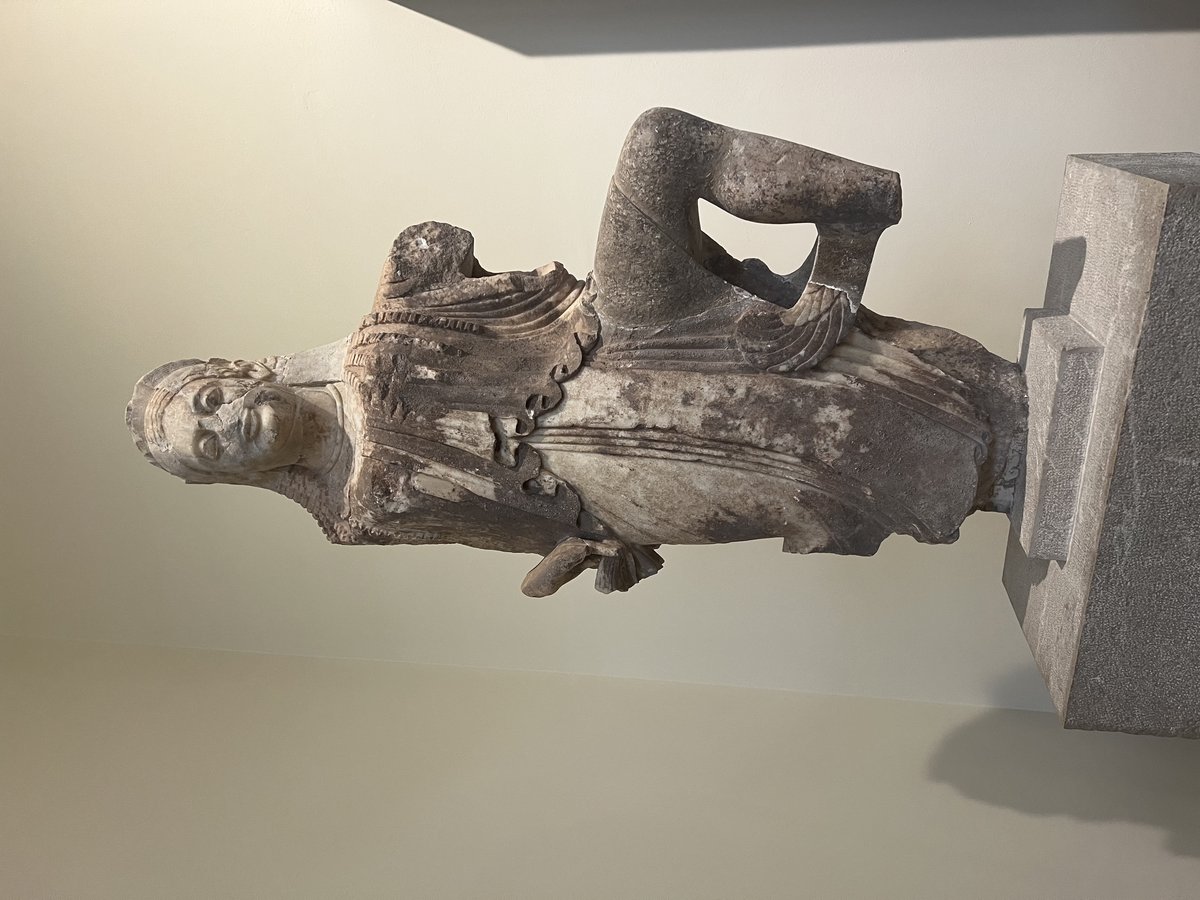
Delphi, Greece: Visiting Hours, Tickets, and Historical Sites Guide
Date: 14/06/2025
Introduction
Delphi, nestled on the slopes of Mount Parnassus in Central Greece, stands as one of the world’s most iconic archaeological sites. Once revered as the “navel of the world,” Delphi was the spiritual and cultural center of ancient Greek civilization. Its famed Oracle, the Pythia, delivered prophecies that shaped the destinies of individuals, city-states, and empires. Today, Delphi remains a UNESCO World Heritage Site, captivating visitors with its powerful blend of myth, history, and natural beauty.
This guide provides a detailed overview of Delphi’s historical and cultural importance, practical information on visiting hours and ticketing, tips for accessibility and travel, and highlights of its most significant monuments and museum treasures. Whether you are a history enthusiast, a cultural traveler, or simply seeking inspiration, this article offers everything you need for an enriching visit to Delphi.
Table of Contents
- Introduction
- History and Mythological Foundations
- Rise as a Pan-Hellenic Sanctuary
- Political and Cultural Significance
- Key Historical Events
- Practical Information for Visitors
- Archaeological Discoveries and Preservation
- Notable Monuments and Features
- Delphi Archaeological Museum Highlights
- Frequently Asked Questions (FAQ)
- Conclusion and Recommendations
- References
History and Mythological Foundations
Delphi’s roots stretch back to the Neolithic period, with evidence of habitation as early as 7000 BCE (The Collector). In the Mycenaean era, Delphi emerged as a sacred cult center, likely dedicated to Gaia, the Earth goddess (UNESCO; Delphi Culture). Greek myth holds that Zeus released two eagles from opposite ends of the earth; their meeting point at Delphi marked the “navel of the world” (Discover Greece). Another myth recounts Apollo slaying the serpent Python, establishing his sanctuary and cementing Delphi as a center of prophetic power (Greek Mythology Worldwide).
Rise as a Pan-Hellenic Sanctuary
Delphi’s formal association with Apollo began in the late 8th century BCE. Its strategic location made it accessible to pilgrims from across the Greek world (UNESCO). By the 6th century BCE, Delphi had become the leading Pan-Hellenic sanctuary, attracting visitors from Asia Minor, North Africa, and beyond (Delphi Culture). The Oracle of Delphi, embodied by the Pythia, delivered prophecies that influenced decisions on colonization, warfare, and politics (Dave’s Travel Pages), making Delphi a focal point for ancient diplomacy and spiritual life.
Political and Cultural Significance
Delphi’s influence extended far beyond religion. Governed by the Amphictyonic League—a council of Greek tribes—the sanctuary hosted the prestigious Pythian Games every four years, featuring athletic, musical, and theatrical competitions (Greek Mythology Worldwide). The Oracle’s pronouncements shaped major events, and the site’s neutrality made it a center for diplomacy, with city-state treasuries and monuments displaying wealth and piety (UNESCO).
The Sanctuary’s economic impact was profound, as valuable offerings funded monumental architecture and supported a vibrant local economy (ancientpedia.com). Delphi’s impartial Oracle also mediated disputes and influenced the founding of colonies and the outcomes of wars (greekpathways.com; historact.com).
Key Historical Events
- Founding of Colonies: City-states consulted the Oracle before establishing new settlements in the Mediterranean (Delphi Culture).
- Sacred Wars: Four major wars were fought over control of Delphi, underscoring its religious and political value (UNESCO).
- Persian and Roman Periods: Despite a Persian sack in 480 BCE, Delphi recovered and flourished, especially under Roman patronage (The Collector).
- Decline: The rise of Christianity led to the sanctuary’s closure in the 4th century CE (The Collector).
Practical Information for Visitors
Visiting Hours and Tickets
- Opening Hours: April–October: 8:00 AM–7:00 PM; November–March: 8:00 AM–5:00 PM. Hours may vary on holidays—check the official Ministry of Culture website before your visit.
- Ticket Prices: Standard adult tickets are €12 (high season) or €6 (low season). EU students and children under 18 enter free; seniors and non-EU students receive discounts (World Guides to Travel).
- Where to Buy: Tickets are available at the entrance and online in advance.
Getting There and Accessibility
- Transport: Delphi is about 180 km northwest of Athens. Travel options include car (2.5–3 hours), KTEL bus from Athens’ Liosion Station (approx. 3 hours), or guided tours (Dave’s Travel Pages).
- Site Layout: The archaeological site and museum are within walking distance of the modern village. Terrain is steep and uneven—sturdy shoes are essential.
- Accessibility: Some areas are wheelchair accessible, especially the museum, but much of the site has steps and rough paths.
Guided Tours and Special Events
Guided tours (private or group) are highly recommended for a deeper understanding of Delphi’s mythology and history. Audio guides and reputable guidebooks are also useful. Delphi hosts cultural events and performances in the ancient theater during summer—check local listings for details (Delphi municipality website).
Nearby Attractions
- Arachova: A mountain town 10 km away, famous for traditional crafts and cuisine.
- Corycian Cave: A scenic hiking destination above Delphi with mythological significance.
- Hosios Loukas Monastery: A UNESCO World Heritage site 35 km away, known for Byzantine mosaics.
- Mount Parnassus: Popular for hiking in summer and skiing in winter.
Archaeological Discoveries and Preservation
Systematic excavations began in 1891 and revealed the Temple of Apollo, theater, stadium, Tholos of Athena Pronaia, Castalian Spring, and numerous treasuries (The Collector; Greeka). The Delphi Archaeological Museum, established in 1903 and expanded in 2004, houses major finds, including the famous Charioteer of Delphi and other masterpieces (Discover Greece).
Notable Monuments and Features
- Temple of Apollo: The sanctuary’s spiritual heart, where the Oracle delivered her prophecies (Dave’s Travel Pages).
- Theater: Hosted the musical and dramatic contests of the Pythian Games.
- Stadium: Venue for athletic competitions; one of the best-preserved in Greece (delphi.culture.gr).
- Treasuries: Monumental buildings erected by city-states to house offerings, notably the Treasury of the Athenians.
- Polygonal Wall: An engineering marvel with hundreds of inscribed manumissions (delphi.culture.gr).
- Tholos of Athena Pronaia: A circular building of ambiguous purpose, admired for its elegant architecture.
- Castalian Spring: Sacred purification site for pilgrims and the Pythia (delphi.culture.gr).
- Sacred Way: The processional route lined with dedications and monuments (greekreporter.com).
Delphi Archaeological Museum Highlights
- Charioteer of Delphi: A life-sized bronze statue from 478 BCE, renowned for its artistry (jvwanderings.com).
- Sphinx of Naxos: Monumental marble statue symbolizing Naxian power.
- Friezes and Metopes: Sculptures from the Siphnian and Athenian treasuries depicting mythological scenes.
- Votive Offerings: Bronzes, figurines, and inscriptions reflecting the sanctuary’s wealth and diversity.
Frequently Asked Questions (FAQ)
Q: What are the Delphi visiting hours?
A: April–October: 8:00 AM–7:00 PM; November–March: 8:00 AM–5:00 PM. Always check official sources for updates.
Q: How much do tickets cost?
A: €12 in high season, €6 in low season, with reductions for students, children, and seniors.
Q: Is the site accessible for visitors with disabilities?
A: The museum is accessible, while the main site has limited accessibility due to terrain.
Q: Are guided tours available?
A: Yes, guided tours are highly recommended and available in multiple languages.
Q: Can I visit the museum with the same ticket?
A: Yes, the ticket covers both the archaeological site and the museum.
Conclusion and Recommendations
Delphi offers a unique opportunity to explore the heart of ancient Greek spirituality, culture, and politics. By understanding the site’s rich history and planning ahead with knowledge of visiting hours, ticketing, and accessibility, visitors can fully appreciate Delphi’s grandeur. Be sure to explore the museum, walk the Sacred Way, and venture to nearby attractions for a complete experience.
For more information, download the Audiala app for interactive maps, audio guides, and travel tips. Follow our blog and social media channels for updates and inspiration for your journey through Greece’s historical wonders.
References
- UNESCO World Heritage Centre – Archaeological Site of Delphi
- Discover Greece – Delphi
- Greek Mythology Worldwide – Delphis Role in the Ancient World
- Dave’s Travel Pages – Delphi Greece
- Wild Trips – Delphi Greece Top 10 Attractions
- Greek Ministry of Culture – Delphi
- Delphi Culture – Historical Evolution of Delphi
- World Guides to Travel – Best Delphi Tours from Athens
- Greeka – Delphi Sightseeing
- JV Wanderings – Visiting the Delphi Archaeological Museum
- Greek Reporter – Must See Archaeological Sites in Greece
